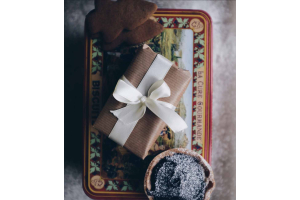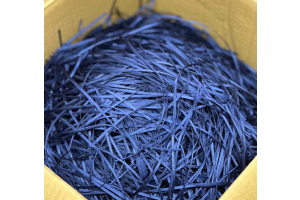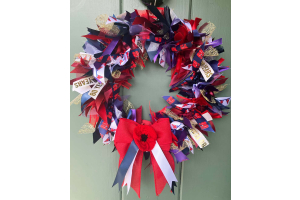Beresford Ribbon Our UK Manufacturer of Choice

Why & How Do We Choose Ribbon Manufacturers
From time to time we are asked which manufacturers we use and why we use them over other companies? As a wholesaler of ribbon we try to use and represent a wide range of manufacturers in order that we can offer our customers the widest choice of ribbon that we can.
At the end of the day Simply Ribbons is all about offering our clients the best selection of quality products that we can at an attractive price point. To this end we review the market place frequently, with quality always at the for front of our minds, coupled together with colour clarity , continued availability, value for money and product and manufacturing accreditation's.
70% Of Our Ribbon Are From UK Manufacturer Berisfords Ribbon
As a result over the years we have aligned ourselves more and more with one manufacturer in particularly, this being the UK Congleton based firm of Berisfords Ribbon, we offer there entire ribbon range as standard and carry large stock holdings.
With many UK ribbon and textile manufacturers having closed down over recent times we are asked who are Berisford Ribbon and what makes them different? Well here we have tried to give you a potted history of the company for those of you who have asked and are interested:
A Condensed History of Berisfords Ribbon *
Berisfords back in 1858, with Charles Berisford and his brothers Francis and William. The John Clowes book “Ribbons and Bows” recalls that Charles was only 28 when he founded the company, but his association with the textile industry started at the age of nine. Working in a mill, he was so small he had to stand on a stool to reach his bench.
Gaining an education at Sunday school and later at nightschool he was eventually considered an educated man with a sound commercial knowledge.
By 1858, Charles realised his dream of founding a company of his own. The brothers leased part of Victoria Mill, on Foundry Bank. By 1872, they were able to buy the entire factory. Success for Berisfords continued and by the time of Charles’s death, in 1898, the company had offices in London, Manchester, Leeds and Bristol.
With the turn of the 20th century, Charles’s son Harry headed the business, assisted by his younger brothers Philip and Ernest. Philip moved to London in 1902, to manage the company’s offices there. He stayed there until he retired in 1924.
Trade was poor during the First World War, although railway orders and demand for uniform braids kept things going. As employees returned from the war, they found things had improved.
Hours of work were better and weavers no longer had to provide their own glue, scissors and candles. Progress continued in the 1930s, as work on converting mills from steam to electricity got underway.
Harry Berisford died in 1936 and Ernest became head of the company but was the last to carry on the company name.
Sebire was the name of the next generation, that being the married name of Charles Berisford’s daughter Lillie. Her son John spent a lifetime with the company and her other son Charles would one day become chairman. Then there was Harold Rippon, a nephew of Harry Berisford’s wife, who joined the firm in 1909, eventually becoming joint managing director. As with so many, Berisfords survived its fair share of upheavals during the Second World War.
John Sebire saw active service in the Far East and was awarded the Burma Star. His thoughts were never far from the business, though, and while visiting a market in Calcutta he found a ribbon stall. He sent samples home which later led to the creation of an attractive range of ribbons.
And so the company moved on. The 1950s saw the introduction of woven label manufacturing and the quest to keep up to date with the latest trends and techniques led to fact-finding trips around the world. The Sebire connection continued with John’s eldest son Stephen joining the firm. After working in a textile factory in Germany and receiving private lessons in weaving, not to mention being called up for National Service, Stephen was appointed production director and was eventually to become managing director.
Berisfords became a public company in 1961 and continued to look further afield for new business opportunities. By now the firm was able to dye and finish it products – a task previously undertaken by specialist companies – and the need for diversification led to the introduction of the trimmings process to the firm. The 1960s and ’70s saw Berisfords take on the world, boldly venturing into new markets in Australia and New Zealand, South Africa, the USA and Europe.
Berisfords survived the upheaval of two world wars and in 1992 became part of the Swiss-based Kuny Group.
By the mid-70s export sales amounted to £1.5 million and the company was employing 800 people in Congleton and elsewhere, including Wales and Ireland. The Berisford Group eventually became part of the Ferguson Group. But the trimming and ribbon manufacturing sides were offered to management, with Stephen and Julian Sebire taking on the ribbon side of the business.
By 1992 Berisfords Ribbons merged with the Kuny Group, from Switzerland, specialists in velvet ribbons, which was followed by a large investment in machinery and systems – and so began the latest chapter in the firm.
* Taken from Berisfords Ribbons Heritage web page with consent
From Strength To Strength
Berisfords Ribbon have just launched the new 2017 brochure coupled together with some exciting new ribbon ranges which will take us through the year with spring, summer. autumn and Christmas products all included and in stock. We restock with them twice a week and are never without a colour for more then a couple of days.
The bulk of there products are machine washable and can be dry cleaned ( there are one or two exceptions but not many).
And it is for these reasons that they are our UK manufacturer of choice.
if you would like any more information or have any questions with regards Berisfords Ribbon, there products or anything mentioned in this article then please feel free to contact us at any time.








 Facebook
Facebook Twitter
Twitter Pinterest
Pinterest